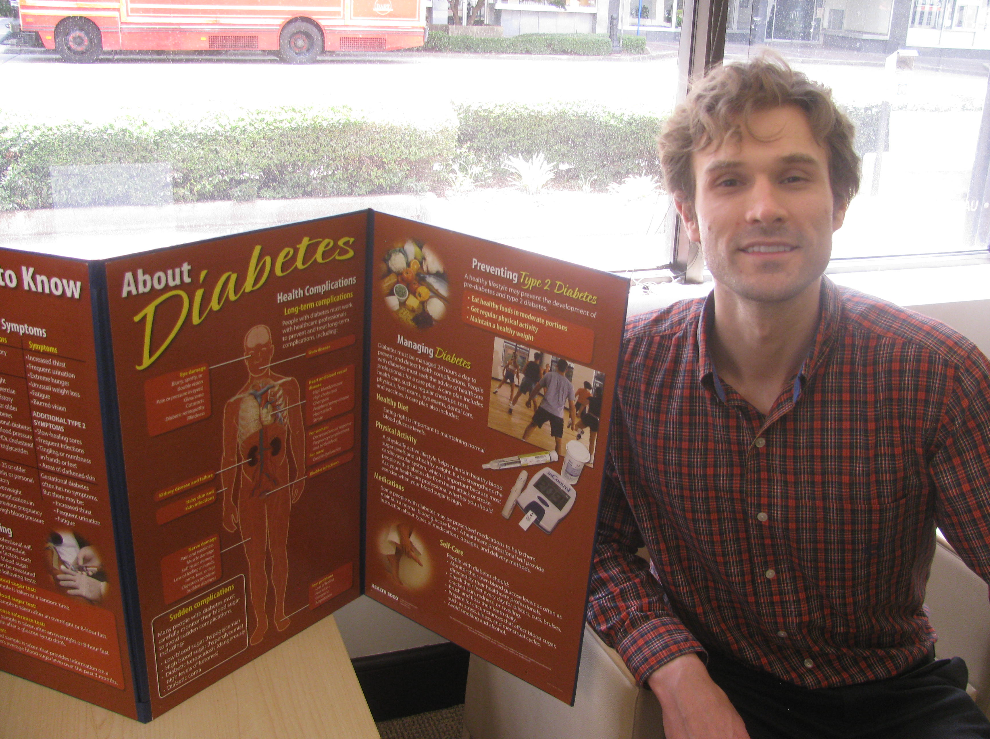By Nathan Turner Jr.
For The Birmingham Times

A high percentage of visitors to the UAB Health Smart Center in downtown Birmingham are afflicted with diabetes and/or high blood pressure—problems that can lead to kidney and heart ailments, said Adam Britt, a dietitian and operations chief of the wellness center. But there are ways to take control of such issues, he added.
The Health Smart Center takes a preventive approach in a state where nearly 32 percent of residents are considered obese and 22 percent of adults smoke.
“An ounce of prevention is worth a pound of cure,” Britt said. “If you can develop lifestyle changes on the front side, you can avoid problems” like diabetes, high blood pressure, and kidney failure.
The University of Alabama at Birmingham (UAB) center’s comprehensive preventive evaluations focus on body fat percentage, blood pressure, cholesterol panels, and diabetes screening. Afterward, results are discussed with a nurse, nutritionist, and exercise specialist to set goals and track progress. Additional screenings are provided throughout the year for dental, vision, and respiratory issues.
“Some people who come in are already trying to improve their lives,” said Britt, who added that Health Smart services are free of charge.
The center accepts walk-in clients, but most patients make appointments. Services include health-risk assessments, as well as nutritional counseling to help clients improve their eating habits. Evaluations are also conducted to help clients learn the components of an effective fitness program, according to Health Smart literature.
One of the major illnesses among Health Smart participants is diabetes, which according to the American Diabetes Association (ADA) and the Centers for Disease Control and Prevention (CDC), is growing at an epidemic rate in the U.S. Nearly 30 million Americans are dealing with diabetes and its consequences, which can include heart disease, stroke, amputation, end-stage kidney disease, blindness—and even death.
More than 610,000 Alabamians have diabetes, according to an ADA report. Here are some tips to help you and your loved ones manage the illness:
Follow your food plan. Know what, when, and how much you eat; all affect blood-sugar levels.
Maintain a healthy weight. Keep off extra pounds by carefully following a food plan and getting plenty of exercise every day.
Get regular physical activity. Being more active helps lower blood sugar and burn extra calories. Try 30 to 60 minutes of light aerobic exercise like walking every day. Talk with your doctor before starting a new exercise plan.
Check blood-sugar levels. Your health-care provider will show you how to use a meter to check your levels.
Reduce heart disease risks. People with diabetes are more likely to develop heart disease and have a heart attack or stroke. Talk to your doctor about quitting smoking, controlling blood pressure, and lowering cholesterol.
Be mindful of overall health. People with diabetes can get sick quickly and often. Infections are common, particularly in the gums and feet. It is recommended that you brush and floss your teeth daily. Also, check your feet daily for cuts, blisters, or any sign of infection.
Take your meds. If you are prescribed insulin, diabetes pills, or other medication, take it exactly the way your health-care provider tells you.
Work with your health-care team. Let all your physicians know if your blood sugar is too high. Have your blood and urine checked. Get eye, feet, and dental exams. Have your blood pressure checked regularly.
UAB HealthSmart is located at 301 20th Street North and can be contacted at www.uab.edu/healthsmart and UABHealthSmart@uabmc.edu. The contact number is 205.996.2304.




